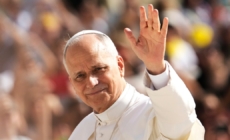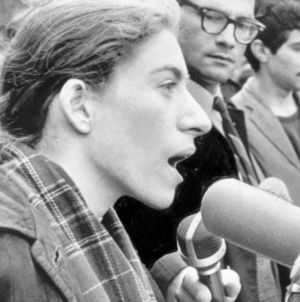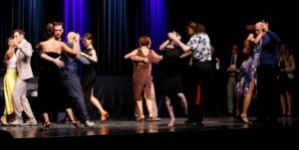The Great Hall of Liszt Ferenc Academy of Music in Budapest
Jeonghwan Kim has won the €22,000 first prize at the 2025 Bartók World Competition for pianists, organized by the Liszt Academy.
The second prize was shared by Spanish pianist Gorka Plada and Hungarian pianist Ildikó Rozsonits, each receiving €8,000. The €8,000 third prize was awarded to Russian pianist Anastasia Klyucharyova, based on the decision of the international jury, the Liszt Academy announced.
The jury also awarded special prizes: Jeonghwan Kim received the €4,000 award for the best Bartók interpretation, as well as the €2,000 prize for the best performance of contemporary works from the competition repertoire that were awarded in last year’s composition round. The audience prize of €1,500 was awarded to Ildikó Rozsonits, based on the votes of the final-round audience.
Thanks to offers from the competition’s partners, several additional special prizes were handed out.
Kim Jeonghwan received concert invitations from the Liszt Academy, the Szeged and Miskolc Symphony Orchestras, and the Hungarian Radio Art Groups. Ildikó Rozsonits received a media package from Papageno, along with performance opportunities from the Palace of Arts (Müpa), the Hungarian National Philharmonic, and Philharmonic Hungary. Anastasia Klyucharyova was invited to perform with the Savaria Symphony Orchestra. Sebestyén Pellet, who reached the solo final, received the Fidelio Fortissimo Prize, that includes media coverage, and concert invitations from the Bartók Memorial House and the MÁV Symphony Orchestra.
In Sunday’s final, held in the Grand Hall of the Liszt Academy, Anastasia Klyucharyova performed Bartók’s Piano Concerto No. 3, while Gorka Plada and Jeonghwan Kim both played Concerto No. 2.
Ildikó Rozsonits performed Beethoven’s Piano Concerto No. 5 in E-flat major. The Hungarian Radio Symphony Orchestra accompanied the finalists, conducted by Gergely Dubóczky.
As part of its long-standing partnership, Yamaha Corporation, the competition’s sponsor, offered a Bösendorfer 280VC concert grand piano — freshly delivered from the Vienna factory — for two years of use at the Liszt Academy. Valued at 100 million forints (approx. €250,000), the piano was used in Friday’s solo final.
It will be one of the available instruments in the Grand Hall going forward, accessible not only to performing artists but also to students.
At the awards ceremony, Gábor Farkas, pianist, rector of the Liszt Academy, head of department, and a member of the international jury, expressed joy that applicants came from 19 countries. He noted that the Liszt Academy ranks among the international elite, holding 12th place in the QS World University Rankings for music.
The jury was chaired by Yoheved Kaplinsky, head of the piano department at The Juilliard School in New York and artistic director of its preparatory division. Other members included
- Özgür Aydin, Turkish-American pianist and professor at the Berlin University of the Arts
- Pavel Gililov, Ukrainian-German pianist, professor at the Mozarteum in Salzburg, and founder-artistic director of the Telekom Beethoven Competition in Bonn
- Tang Qiao, Chinese pianist, professor and vice dean at the Shanghai Conservatory of Music.
Hungarian members included Gábor Farkas, Kálmán Dráfi (pianist and professor at the Academy), Gyula Fekete (composer, vice-rector, and department head at the Academy), and pianist Dezső Ránki.
The required repertoire emphasized Bartók’s most important piano works, which were featured in every round. Contestants also had to demonstrate their skill by performing pieces by Liszt, Kodály, Dohnányi, Scarlatti, Ravel, Debussy, Scriabin, Prokofiev, and Stravinsky.
A unique aspect of the Bartók Competition is that winning works from the composition round are included in the instrumentalists’ required repertoire.
This year, the two selected compositions were “Vertigineux” (“Dizzying”) by Lee Hanuri and “Kirakós” (“Puzzle”) by Mátyás Papp, both winners of the 2024 composition round.
A total of 55 young talents applied to this year’s competition. Based on the submitted videos, a pre-selection jury composed of Academy faculty selected the participants for the live rounds, where 21 pianists ultimately performed on stage. Alongside the event, the Central European Music History Research Group of the Academy’s Department of Musicology held its second international conference.
Fact
The Bartók World Competition was launched in 2017. It follows a six-year cycle, focusing on key elements of Béla Bartók’s oeuvre: piano, violin, string quartet, and composition. The instrumental competitions are held in odd-numbered years, while the composition competition takes place in even-numbered years.
Related article
Kodály Institute Celebrates Its 50th Anniversary
A commemorative concert featuring Kodály’s iconic works will be held on August 7 in Budapest. Continue reading
Via MTI, Featured image: Wikipedia
The post German-Korean Pianist Triumphs at Bartók World Competition appeared first on Hungary Today.
Source link




























